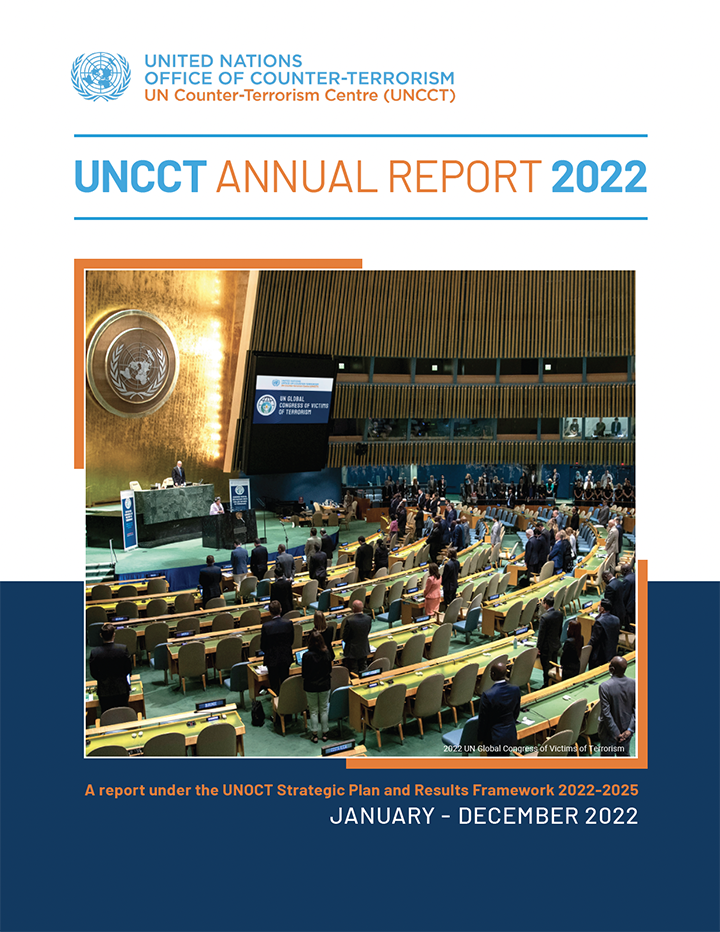Measuring impact

UNCCT has placed considerable emphasis on the need for effective monitoring and evaluation of its projects. Photo: UNOCT stock photo
Results-Based Programme Framework
UNCCT is committed to maximizing impact on the ground through the rigorous implementation of a results-based monitoring and evaluation system which enables the Centre to measure the performance of its programmes and projects. In order to increase transparency, accountability and effectiveness of its programming, UNCCT has developed a results-based Programme Results Framework, integrated into the UNOCT Monitoring and Evaluation Framework, which measures UNCCT’s contribution to the implementation of all four Pillars of the United Nations Global Counter-Terrorism Strategy.
The Results Framework is based on 4 interrelated and mutually reinforcing outcomes corresponding to each Pillar of the Global Counter Terrorism Strategy and 12 outputs that each correspond to an outcome and comprise several UNCCT programmes and projects. It provides a set of indicators at the outcome and output level which is used to measure progress towards the implementation of the UNCCT 5-Year Programme.
Monitoring
UNCCT programme/project managers follow a results-based monitoring and evaluation approach which is focused on the achievement of intended results (outputs, outcomes and higher-level goals or impact) and aimed at collecting and assessing information on the changes that a programme or project is producing, with a view to improving the performance of existing and future programmes and projects.
The Centre uses a set of monitoring and evaluation tools to develop indicators and baseline data and to collect and report on performance on a monthly, quarterly and annual basis. Programme/project management teams use standardized templates for project design and development, aligned with PRINCE2 project management methodology, which not only provide clear guidance to the project manager, but also allow for results-based management and accountability.
Evaluation
UNCCT conducts internal and external evaluations of its programmes and projects to assess their relevance, effectiveness and impact, take corrective actions, and improve programme/project performance. The Centre incorporates the recommendations and lessons learned from the evaluations into decision-making processes, in order to improve the design and implementation of its capacity-building interventions. In undertaking evaluation, the Centre is guided by the norms and standards for evaluation as set out in the United Nations Evaluation Group (UNEG) Norms and Standards.
In line with international good practices for development aid, the following criteria are considered when evaluating UNCCT programmes and projects: Relevance; Effectiveness; Efficiency; Impact; Sustainability.
- Relevance: The extent to which the aid activity is suited to the priorities and policies of the target group, recipient and donor.
- Effectiveness: A measure of the extent to which an aid activity attains its objectives, including an evaluation of the major factors influencing the achievement or non-achievement of the objectives.
- Efficiency: Measures the qualitative and quantitative outputs in relation to the inputs, including in terms of cost-efficiency and timeliness.
- Impact: The positive and negative changes produced by a development intervention, directly or indirectly, intended or unintended. In evaluating the impact, it will inter alia consider what has happened as a result of the programme or project, what real difference has the activity made to the beneficiaries, and how many people have been affected.
- Sustainability: Measuring the sustainability of the benefits of an activity after donor funding has been completed.


